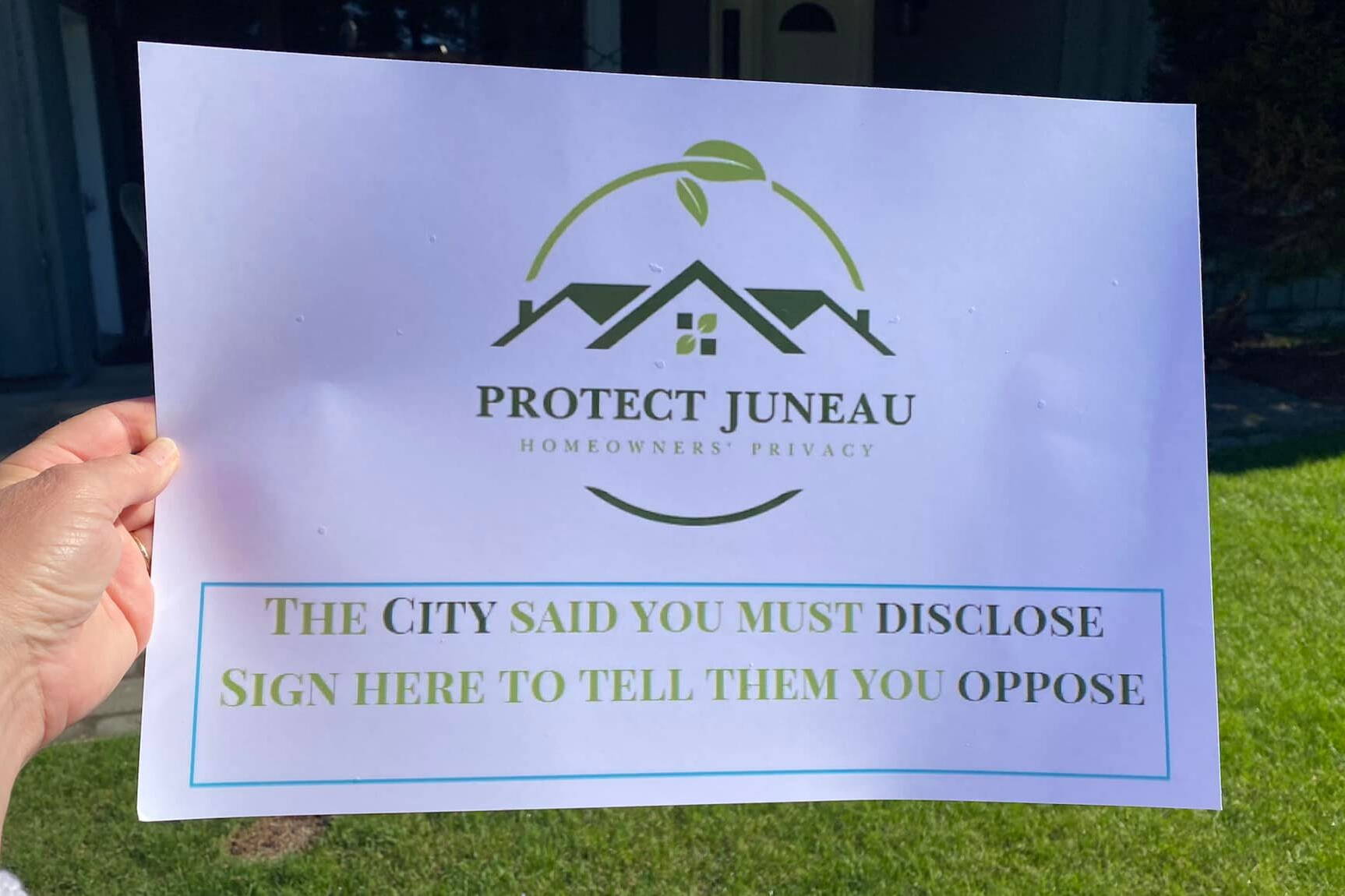People who’ve bought property during the past 18 months have four weeks to tell the city how much they paid to avoid a $50 daily fine — and if they’re unhappy about that have until Friday to sign a petition asking voters to get rid of the requirement.
A petition seeking the repeal of the requirement is circulating after the Juneau Assembly voted in April to mandate the fines if buyers of commercial or residential properties fail to disclose purchase prices by June 27 or 90 days from the date of the transaction, whichever is later.
Exemptions to the disclosure rule exist, including transactions between close family members and associated businesses.
[CBJ considers real estate disclosure rule changes]
A group of real estate agents and others calling itself Protect Juneau Homeowners’ Privacy must turn in 2,310 signatures for the repeal question to appear on the October municipal ballot.
“We are close to our number,” said Tonja Moser, president of the Southeast Alaska Board of Realtors, noting that as of noon Tuesday about 2,300 signatures had been collected.
She said petitioners are hoping to collect 3,000 signatures to ensure a decent safety buffer, and signature gatherers are planning to turn in their booklets at the end of the day Thursday to ensure they are accurately tallied and turned into the city by Friday’s deadline.
Alaska is among a small number of states that don’t require the final sale price of property transactions to be shared publicly, although municipalities can impose their own requirement. The City and Borough of Juneau Juneau Assembly narrowly approved the requirement in 2020 after contentious debate, with advocates arguing it would result in better annual property assessments and thus fairer rates for taxpayers.
Opponents argue numerous variables factor into purchase prices such as repairs a structure needs, special features of the land, and prevailing rental rates for commercial properties. Those frequently result in much different totals than assessed valuations based on square footage and other data-based factors generally used locally, critics say.
“The city’s assessment has no bearing in how we price houses,” Moser said. “We know what’s happening in the market minute by minute.”
The issue remains divisive, and skyrocketing property values and thus assessments during the past year or two are adding fuel to the fire. Moser said a key part of the argument by petitioners is inflated assessment values by the city are hurting residents seeking and entities interested in providing low-income housing.
The Assembly unanimously voted in April to impose the daily fines after a 90-day grace period because, as Juneau Finance Director Jeff Rogers put it at the time, buyers saw it as a “toothless” requirement and thus a majority of them were failing to comply. Frustration was also expressed by many involved with transactions that the new rule meant city assessors could not share the purchase price with other parties and the confidentiality clause made tax appeals more difficult.
But Moser asserts the Assembly didn’t hear a comprehensive range of opposing arguments before passing the original disclosure requirement. She said her conversations with locals during four weeks of signature gathering suggests “the majority of people I’m talking to are in favor of repealing, or at least voting on it.”
“We actually hope the Assembly, if they see enough signatures, will just repeal it,” she said.
Assembly member Christine Woll, who was among those voting in favor of the disclosure requirement in 2020, said she doesn’t expect a repeal by the Assembly before the election if the question is placed on the ballot.
“Unless somebody changes their mind, which I’m not aware of, I’m not sure why the Assembly would discuss this again. We tend to move on after we’ve taken action.”
Assembly members and city officials are monitoring compliance with the disclosure requirement and if it’s serving its intended purpose, as well as how the fines are affecting participation, Woll said. She said the petition and possible vote this fall will offer a further chance “to see what voters think.”
“If it turns out it’s not working we will reassess it,” she said.
The announcement of the fines does appear to be motivating purchasers to disclose their prices before the June 27 deadline. City Assessor Mary Hammond said that slightly more than 100 disclosure letters were received between January and March of this year, but 254 were received in April.
“We did have a strong response when we sent out the notices” after the fines were announced, she said.
The letters requesting disclosure by buyers is an ongoing process and as of May 25 there were 293 letters sent 90 days or more ago that have not received responses, Hammond said.
• Contact reporter Mark Sabbatini can be reached at mark.sabbatini@juneauempire.com

